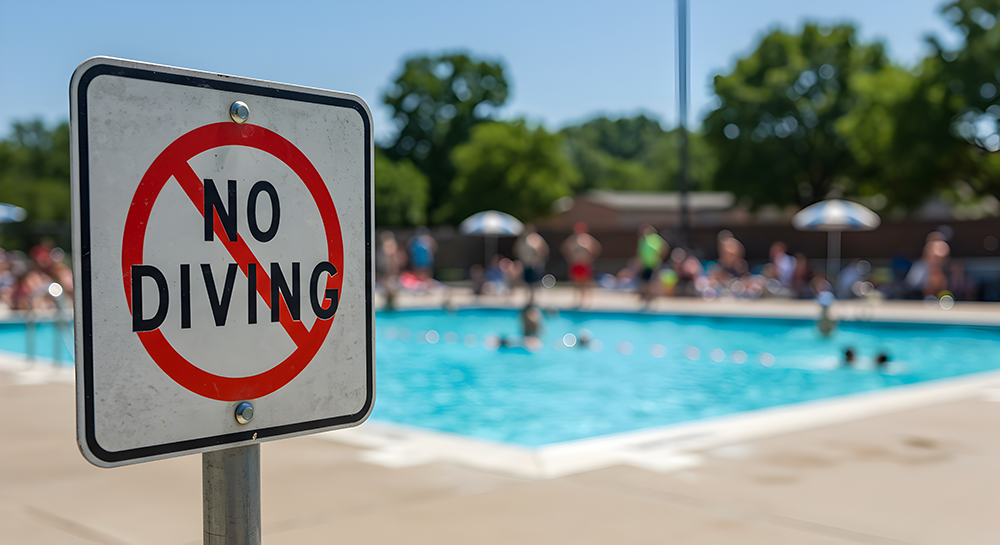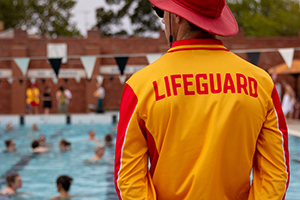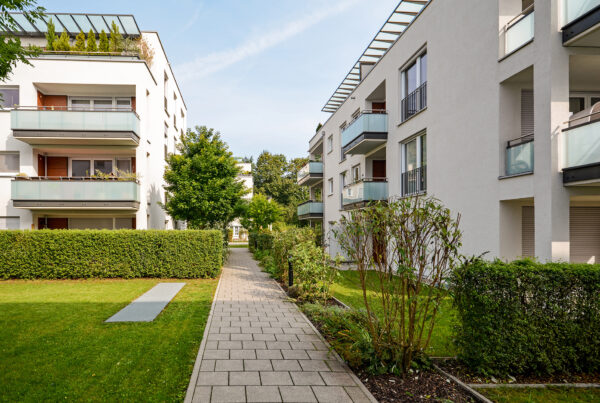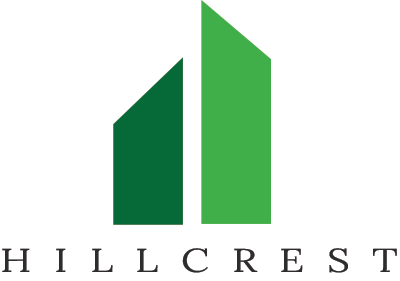An HOA pool is often the heart of a community during the warmer months. It offers a place to relax, cool off, and socialize. But, without strict safety rules and enforcement, it can quickly become a source of risk and liability. Associations need to set clear expectations and ensure residents understand and follow them.
The Importance of HOA Pool Safety
HOA and pools go hand in hand when it comes to responsibility and safety. Pool-related injuries or accidents can result in lawsuits, medical emergencies, and higher insurance costs. It is essential to manage these risks before problems can arise.
When board members focus on safety, the association can also help residents enjoy the pool with peace of mind. Additionally, safety builds trust in the board. With a well-managed pool, families will be enticed to use the facility on a regular basis. It can even function as a main gathering place or focal point for social events.
Should the HOA Hire a Pool Lifeguard?
One of the first questions a board may ask is whether or not to hire a lifeguard.
A trained lifeguard can reduce risks, deter unsafe behavior, and provide immediate emergency response. The presence of a lifeguard can also serve as a visual reminder that the HOA takes pool safety seriously.
Still, hiring a lifeguard also comes with added costs and responsibilities. The HOA must vet candidates, ensure certifications are up-to-date, and comply with local employment laws. The association should also ensure proper insurance coverage and consult an attorney before hiring a lifeguard.
A good lifeguard should hold current Red Cross lifeguard certification, CPR training, and preferably have experience with HOA pools. Associations should also perform background checks and confirm references. It is important to know how many hours the lifeguard will be on duty and what specific tasks they will manage.
If the association decides not to hire a lifeguard, the board should clearly post a sign that says there is no lifeguard on duty. Illinois law requires this signage in most unguarded pools. The sign should be easy to read and include warnings that swimmers use the facility at their own risk.
Key Safety Considerations for HOA Pools
A safe HOA pool requires careful planning, consistent enforcement, and ongoing education. Here are the key considerations to make.
1. Establish HOA Pool Hours and Capacity Limits
The HOA board should set pool hours to keep noise and activity at manageable levels. This way, no resident can go swimming at night, when there is limited visibility. This will also give maintenance crews sufficient time to work.
Additionally, the board should establish capacity limits. This can prevent overcrowding and allow residents to enjoy the pool in a comfortable manner. Boards should ensure that both pool hours and capacity limits are posted at the gate.
2. Educate Residents on Safety and HOA Pool Rules
Board members should educate residents on HOA pool safety and rules. They can do this through meetings, posting reminders, and using newsletters. It is essential that the rules are easy to understand and easily accessible. The board can also use email, post on bulletin boards, and distribute handouts.
3. Post Pool Signs
Signs should list all pool rules, hours, capacity limits, and emergency procedures. The board should place them at entrances and near changing or seating areas. It is also a good idea to consider using waterproof materials and multilingual signs if the community is diverse.
4. Secure HOA Swimming Pool Fencing
Many local jurisdictions require fencing for public pools. Fences should be at least 4 feet tall and non-climbable. They should also have self-closing and self-latching gates. The board should inspect fences regularly to ensure they are in good condition. If there are any damages, repairs must come quickly.
5. Schedule Regular Pool Maintenance
Regular pool maintenance is essential. The board should hire a contractor to keep the water clean, chemically balanced, and clear. They should also maintain all equipment, including filters, heaters, and ladders.
Additionally, there should be a maintenance log to track regular service. Maintenance vendors should carry the proper licenses and insurance. To ensure compliance, the board should review these service contracts on an annual basis.
6. Implement HOA Community Pool Alarms
Pool alarms are a smart safety feature. Alarms can detect entry or water disturbance when the pool is closed or empty. Some alarms even connect to mobile devices and alert board members or security teams in real time.
7. Ensure Compliant Drain Covers
Federal law under the Virginia Graeme Baker Pool and Spa Safety Act requires compliant drain covers. This prevents dangerous suction entrapment, especially in small children. The board should inspect drain covers at once a year. It’s also smart to document this in case of legal issues or future inspections.
8. Install a Pool Phone
An emergency pool phone near the pool will allow for quick emergency calls if there is an injury. Cell phones may lose signal or battery, so a hard-wired option is much safer. Post laminated instructions and emergency numbers next to the phone as well.
9. Have a Pool Flotation Device
Even if there is no lifeguard, flotation devices are a must. Illinois requires some public pools to keep life rings or hooks within reach. It is important to store these tools in clearly marked areas. Moreover, regular inspection and swift replacement of damaged equipment are necessary.
10. Stock a First Aid Kit Nearby
Boards should keep a first aid kit in the pool area. This first aid kit should include bandages, antiseptics, gloves, and CPR masks. Make sure to store it in a waterproof container near the pool entrance. The board should inspect this kit regularly to refill used or expired items. All residents should be informed of the location of this kit.
Essential HOA Pool Safety Rules
Homeowners association pool rules are critical for safety. The HOA board should review each rule and post them all in a clearly visible place. Here are the most common HOA pool safety rules.
1. No Diving
Most HOA pools are not deep enough for safe diving. Because of this, it’s important to prohibit diving to prevent head, neck, and spine injuries. Post “No Diving” tiles along the deck edge.
2. No Running or Rough Play
Running can lead to slips and falls. Horseplay can cause injuries and create an unsafe atmosphere for others. The board should discourage jumping on others or any dunking games, too.
3. No Swimming Under the Influence
Alcohol or drug use will interfere with judgment and coordination. Boards should ban swimming under the influence to prevent accidents.
4. No Swimming Alone
Associations should encourage a buddy system. That means no resident should swim alone. If there is no lifeguard, someone might get into an emergency, and no one will notice.
5. No Glass Containers in the Pool Area
Glass breaks easily and can lead to dangerous cuts. For this reason, poolgoers should only use plastic or metal containers. Even small shards can be difficult to see in pool water.
6. No Pets in the Pool Area
Pets can contaminate the water and create safety risks. The HOA board should prohibit animals unless they are service animals required by law.
7. No Electrical Devices in the Pool Area
To prevent electrocution, keep extension cords, speakers, or appliances away from the pool deck. Residents can use battery-powered or solar-powered devices instead.
8. No Swimming During Inclement Weather
It is essential to close the pool during lightning, thunderstorms, or heavy winds, especially for outdoor pools. The board should post signs that remind swimmers to leave the pool area when there is inclement weather.
9. Proper Swimwear Required
Swimmers should wear clean and proper swimwear. Improper swimming attire can clog filters and interfere with the quality of the water.
10. Shower Before Swimming
Rinsing off before swimming will help remove oils, sweat, and products that affect water balance and cleanliness. For this reason, boards should require swimmers to shower before entering the pool.
11. Keep Volume Levels Reasonable
Loud noise can disturb neighbors and other swimmers in the area. Residents should keep music and conversation at a respectful noise level. The board can also consider implementing quiet hours for early morning or evening swims.
The Bottom Line
A safe HOA pool starts with good rules, clear signage, and well-informed residents. Board members should enact and enforce rules consistently to ensure safety and compliance.
Hillcrest offers HOA management services to communities in Chicago. Call us today at 630-627-3303 or contact us online to request a proposal!
RELATED ARTICLES:
- HOA Pool Rules Made Easy: Tips For Boards And Residents
- Condo And HOA Rule Enforcement
- How To Address HOA Noise Complaints In Chicago






